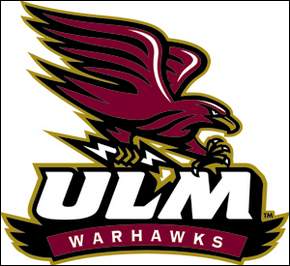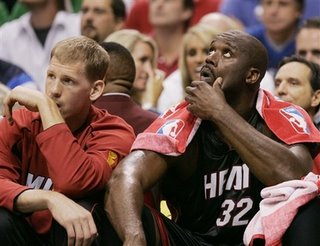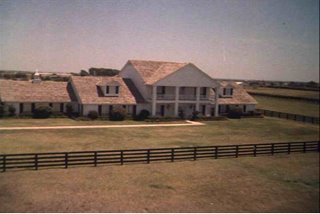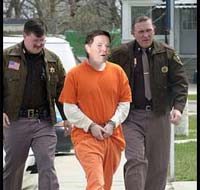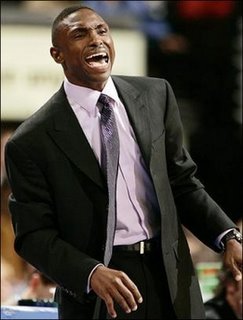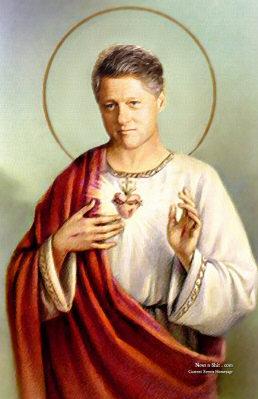By RACHEL ZOLL, AP Religion Writer
COLUMBUS, Ohio - Episcopal Bishop Katherine Jefferts Schori has tackled male-dominated fields before as an oceanographer and a pilot. Now, she is taking on an even broader challenge as the first woman in the world to lead an Anglican province.
Jefferts Schori, bishop of Nevada, was elected Sunday as the first female presiding bishop of the Episcopal Church, the U.S. arm of the Anglican Communion. It is the latest groundbreaking and potentially divisive move by the American denomination.
Three years ago, Episcopalians stunned the communion by consecrating the first openly gay bishop — V. Gene Robinson of New Hampshire. The Episcopal General Convention, the national meeting where Jefferts Schori was elected, will decide this week whether to appease angry overseas archbishops by temporarily barring homosexuals from leading dioceses.
As presiding bishop, Jefferts Schori will have to explain the church's decision to elevate Robinson, which she supported, to the Anglican leaders who don't even consider her ordination valid. Many Anglicans believe women should not be ordained.
Only two of the 37 other Anglican provinces — New Zealand and Canada — have female bishops, although some allow women to serve in the post.
Asked how she would deal with such opposition, Jefferts Schori recalled a science research cruise she joined where the captain, who thought she didn't belong, vowed not to speak with her.
After 15 minutes on board, she said, "He got over it."
"I will bend over backward to build relationships with people who disagree with me," she said.
How the Anglican Communion will respond is unclear. The first test will come at a meeting of all the Anglican archbishops — called primates — next year in Tanzania.
The Rev. Canon Chris Sugden, a leader of Anglican Mainstream, a Church of England conservative group, said the election of Jefferts Schori "shows that the Episcopal leaders are going to do what they want to do regardless of what it means to the rest of the communion." The Church of England is in the midst of a difficult debate over whether to appoint woman bishops.
Pittsburgh Bishop Robert Duncan, head of the Anglican Communion Network, which represents 10 U.S. conservative dioceses and more than 900 parishes within the Episcopal Church, noted that three of its dioceses do not ordain women. The network, which is considering splitting from the denomination, has a meeting at the end of July to plan its next move.
"For the Anglican Communion worldwide, this election reveals the continuing insensitivity and disregard of the Episcopal Church for ... our global fellowship," Duncan said.
Still, the potential consequences did not dampen excitement about Jefferts Schori's election. Standing before cheering delegates to the General Convention, she said she was "awed and honored and deeply privileged to be elected." Outgoing Presiding Bishop Frank Griswold was at her side as she was introduced after closed-door balloting.
Episcopal bishops elected Jefferts Schori on the fifth ballot. She collected 95 votes, with 93 others split between the rest of the field — six candidates, all men. Other General Convention delegates confirmed the choice. Afterward, women priests and bishops could be seen celebrating and embracing in the convention hall.
Jefferts Schori, 52, is a former oceanographer who became a priest after federal funding for her work dried up and she was asked to fill in as a preacher at her local church.
"When I was growing up, girls didn't aspire to such things. Girls sang in the choir," she said. But preaching, she said, "led me to realize it was something I wanted to do."
She was ordained in 1994 and seven years later was chosen leader of the Diocese of Nevada. Married with one daughter, she is a licensed pilot who speaks Spanish and is known for her outreach to the Hispanic community. She will be installed to her nine-year term at a ceremony Nov. 4 in Washington National Cathedral.
The presiding bishop represents the Episcopal Church in meetings with other Anglican leaders and with leaders of other religious groups. But the presiding bishop's power is limited because of the democratic nature of the church. The General Convention is the top Episcopal policy-making body and dioceses elect their own bishops.
Jefferts Schori would not say whether she thought the church should enact a moratorium on gay bishops since the convention hadn't yet voted on the measure. The meeting ends Wednesday.
The new leader will inherit a shrinking church. Membership in the Episcopal Church, as in other mainline Protestant groups, has been declining for years and has remained predominantly white. More than a quarter of the parishioners are age 65 or older.
___
On the Net:
Episcopal Church:
http://www.episcopalchurch.org________________________________________________________
I think this is that little bit of good news you were wanting, A. I've always thought that churchs had the wrong end of the stick with not allowing women to be ordained.... and if you are going to ordain them, you can't really keep them out of the rest of it. I know that some people argue that the church is bowing to social pressure, and is trying to "market" itself to attract new members. I feel that the church is starting to get things right. I believe that the church has been has been shaped by social pressure since the apostles ran from the garden. The church should be concerned about returning to the ideals set out by Christ (who, imho, wanted to reform Judaism, and create a new faith) and not the ideals and prejudices formalized by those who came after.
Anywho, kudos to the Espiscopals for believing that not only was a woman spiritually fit enough to preach, but fit enough to help run the church.





